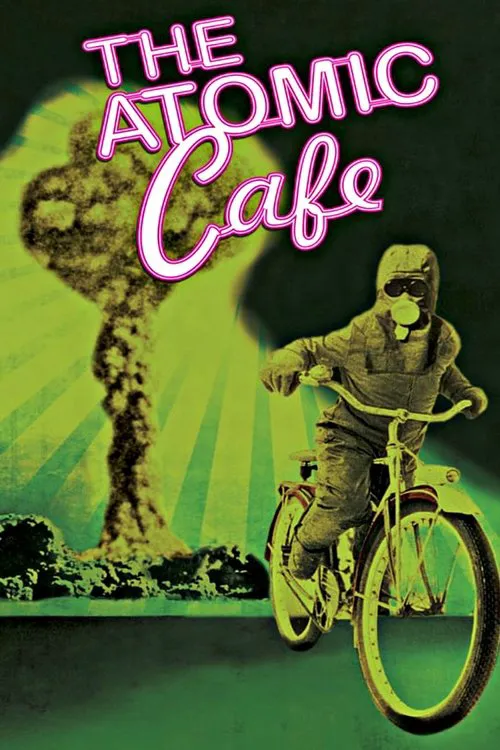The Atomic Cafe

Plot
In the aftermath of World War II, the United States government launched a comprehensive propaganda campaign aimed at instilling a sense of security and patriotism among its citizens. As the era of the atomic bomb began to unfold, a series of films was created to address what the government perceived as public anxiety about the potential dangers posed by nuclear weapons. These films, which were produced by the U.S. Army Signal Corps and the Office of War Information, formed the core of "The Atomic Cafe," a 1982 documentary film directed by Kevin Rafferty, Pierce Rafferty, and Jayne Loader. The films themselves showcase a range of bizarre and often disturbing imagery, as they depict an idyllic America, seemingly unaffected by the presence of atomic power. In "The Atomic Cafe," these propaganda shorts are juxtaposed with contemporary footage of nuclear tests, demonstrating the glaring disconnect between the idealized vision of America presented by the films and the stark reality of the nuclear age. One of the most striking aspects of these early atomic bomb films is their complete dismissal of any potential threat posed by nuclear war. The movies depict a future America where children play in the streets, unafraid of the shadow of nuclear annihilation hanging over their heads. The citizens, shown to be blissfully unaware of the dangers surrounding them, are reassured that the government is actively addressing the challenges posed by atomic power. The filmmakers behind "The Atomic Cafe" took these propaganda shorts and wove them together into a cohesive and thought-provoking documentary that serves as a biting critique of the U.S. government's manipulation of public opinion in the Cold War era. At its core, "The Atomic Cafe" is a powerful commentary on the power of media and the willingness of governments to use propaganda to shape public perception. A central theme of the documentary is the way in which the U.S. government used the atomic bomb as a symbol of national power and American exceptionalism. By downplaying the risks and dangers posed by nuclear war, the government created an impression of invincibility, which resonated deeply with the American public. The propaganda films, full of optimistic and reassuring messages, helped reinforce this image, as Americans were portrayed as a people who were capable of overcoming any challenge. The filmmakers of "The Atomic Cafe" also examine the impact of these films on the American psyche. By presenting an idealized vision of a nuclear future, the government created an environment where citizens felt confident in their leaders' ability to handle the threat of atomic power. However, this confidence was misplaced, as the reality of nuclear destruction loomed large over the world. One notable segment of "The Atomic Cafe" focuses on the role of the nuclear family in an atomic age. A series of mock advertisements and training films, designed to educate Americans on how to behave in case of a nuclear attack, is used to illustrate the government's efforts to instill a sense of resilience and community among citizens. These segments, which feature actors playing ordinary Americans responding to a hypothetical nuclear crisis, demonstrate a surreal quality, as they juxtapose a seemingly idyllic family life with the very real threat of nuclear destruction. Additionally, "The Atomic Cafe" delves into the U.S. government's attempts to rebrand the atomic bomb as a symbol of American ingenuity and progress. By portraying the atomic bomb as a powerful force for good, the government aimed to create a sense of national pride and ownership in the technology. However, this public relations effort ultimately proved to be an exercise in manipulation, as the full extent of the bomb's destructive power was downplayed or concealed from the public. Through its expertly curated assemblage of government propaganda films, "The Atomic Cafe" provides a window into a pivotal moment in American history. By examining the U.S. government's attempt to control public perception in the face of nuclear uncertainty, the film serves as a poignant reminder of the complex and often fraught relationship between government, media, and the public during the Cold War. By revealing the darker aspects of America's nuclear past, "The Atomic Cafe" leaves viewers with a sobering reflection on the power of propaganda and the enduring impact of nuclear fear on American society.
Reviews
Recommendations




